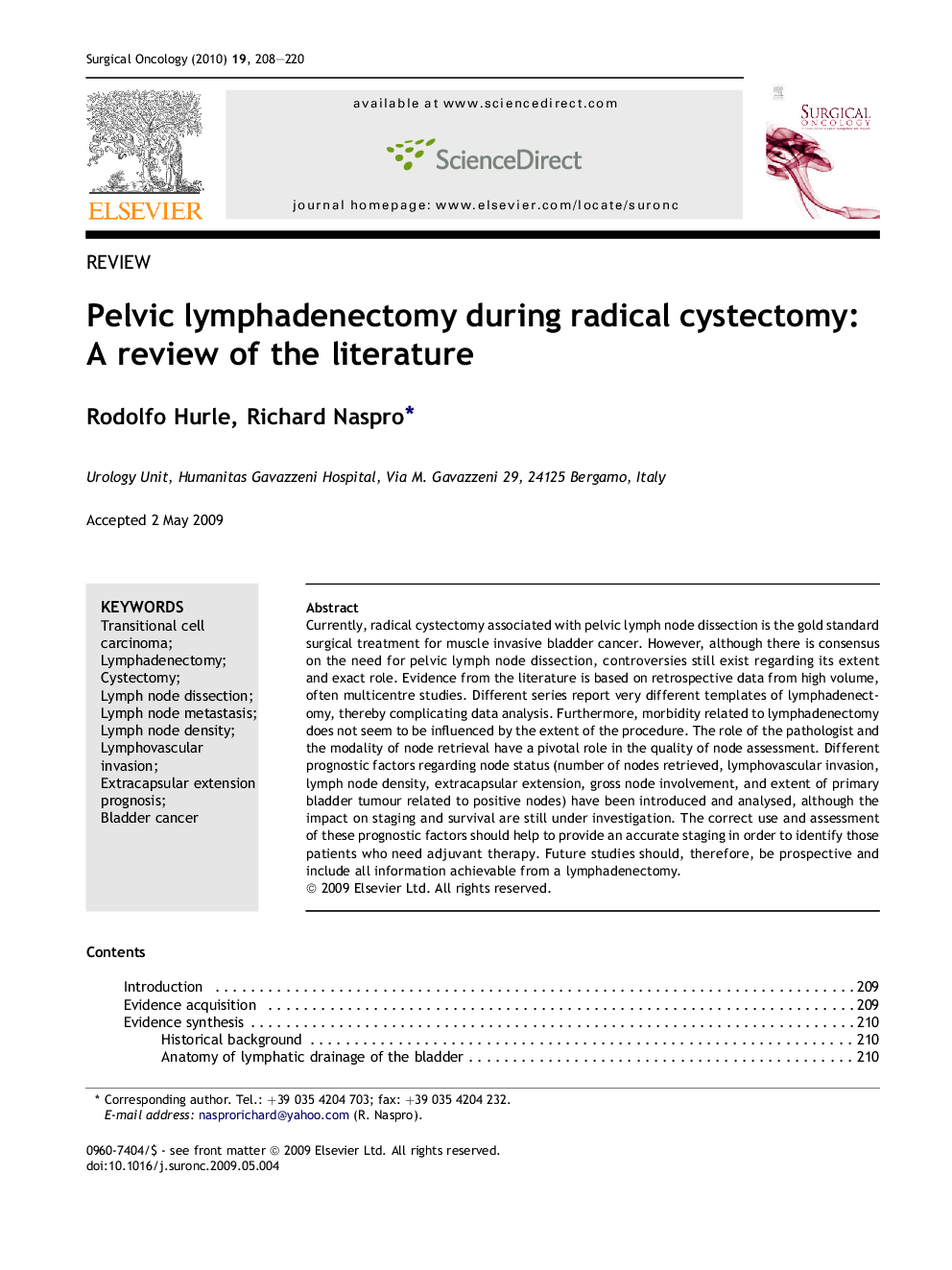| Article ID | Journal | Published Year | Pages | File Type |
|---|---|---|---|---|
| 3998000 | Surgical Oncology | 2010 | 13 Pages |
Currently, radical cystectomy associated with pelvic lymph node dissection is the gold standard surgical treatment for muscle invasive bladder cancer. However, although there is consensus on the need for pelvic lymph node dissection, controversies still exist regarding its extent and exact role. Evidence from the literature is based on retrospective data from high volume, often multicentre studies. Different series report very different templates of lymphadenectomy, thereby complicating data analysis. Furthermore, morbidity related to lymphadenectomy does not seem to be influenced by the extent of the procedure. The role of the pathologist and the modality of node retrieval have a pivotal role in the quality of node assessment. Different prognostic factors regarding node status (number of nodes retrieved, lymphovascular invasion, lymph node density, extracapsular extension, gross node involvement, and extent of primary bladder tumour related to positive nodes) have been introduced and analysed, although the impact on staging and survival are still under investigation. The correct use and assessment of these prognostic factors should help to provide an accurate staging in order to identify those patients who need adjuvant therapy. Future studies should, therefore, be prospective and include all information achievable from a lymphadenectomy.
